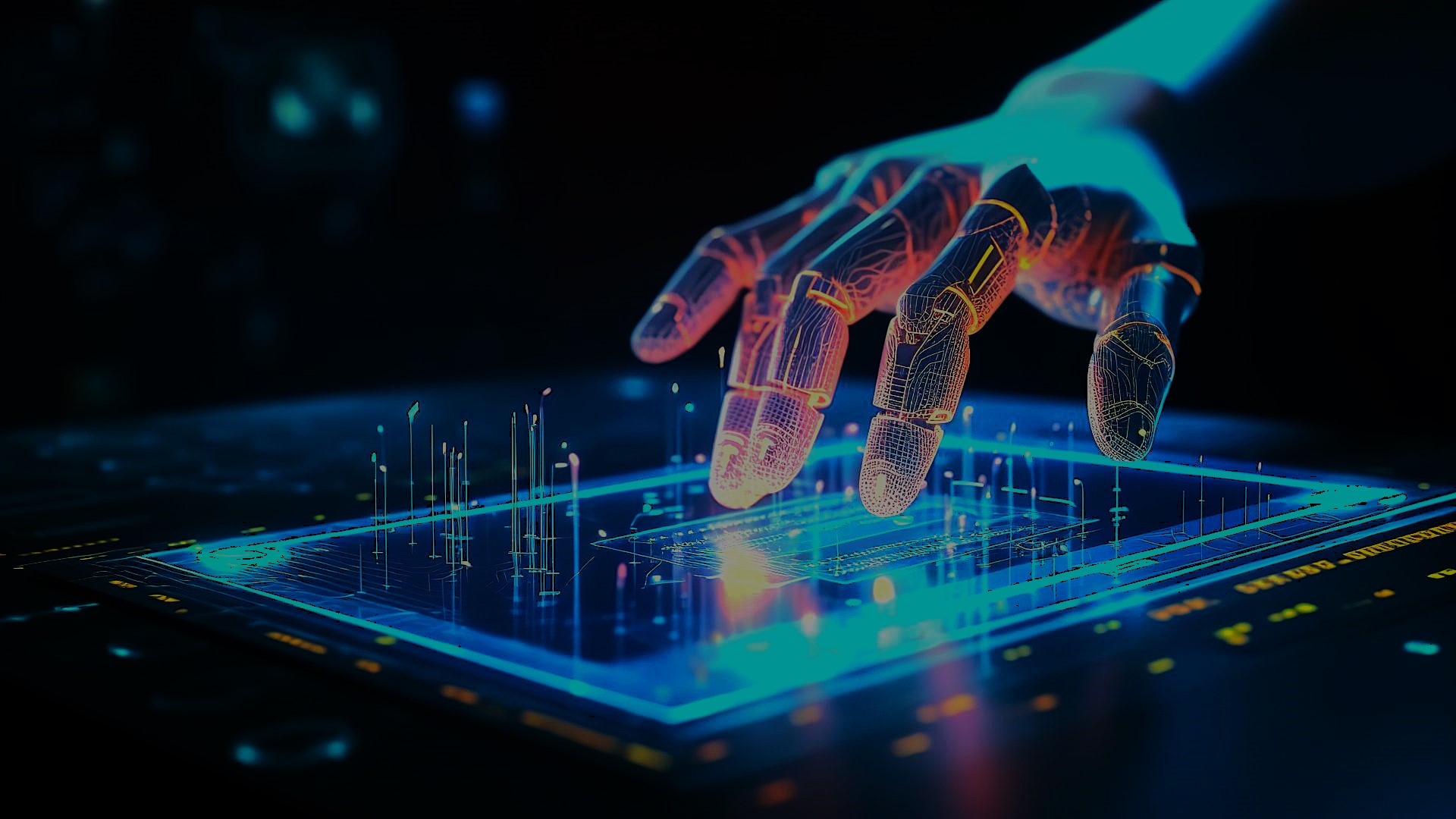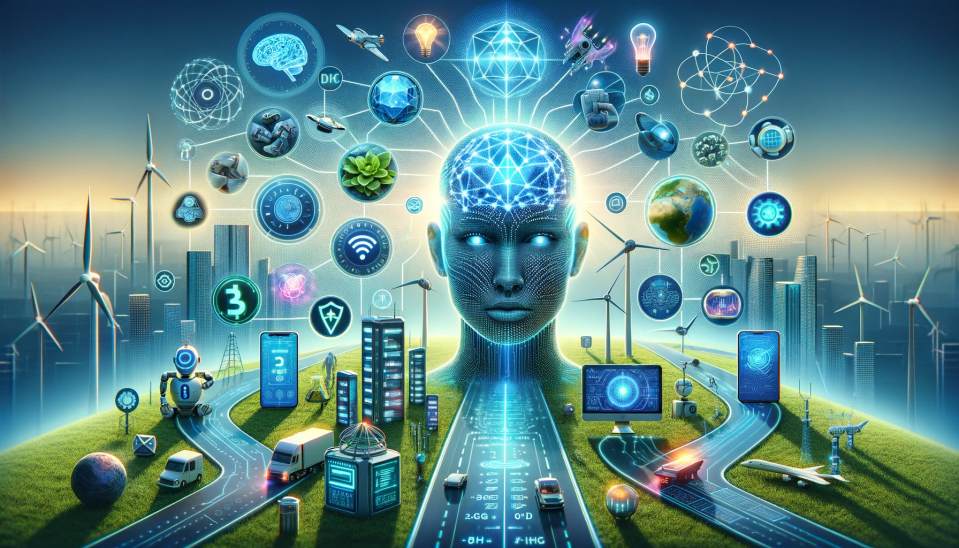The Transformative Power of AI Technology: Unlocking New Horizons in a Digital World
Introduction
Artificial Intelligence (AI) has evolved from science fiction to a revolutionary force in today’s digital landscape. With applications across industries, AI is transforming our interactions, decisions, and daily lives. This article dives into AI’s technology backbone, its diverse applications, ethical challenges, and the promising future it holds.
The Fundamentals of AI: What It Really Is
AI is the ability of a machine to imitate human intelligence through learning, reasoning, and self-correction. It encompasses several technologies, including machine learning (ML), natural language processing (NLP), and neural networks.
- Machine Learning enables computers to learn from data without explicit programming.
- Natural Language Processing allows machines to understand, interpret, and produce human language.
- Neural Networks simulate the way human brains work, allowing AI to recognize patterns, predict outcomes, and improve over time.
The Current State of AI: Where Are We Today?
AI today is integral to many sectors, from healthcare to retail, revolutionizing operations and creating new opportunities. Let’s take a closer look at how AI is shaping key industries:
- Healthcare: AI aids in diagnosis, drug discovery, and personalized treatment plans. For example, AI models analyze medical images with high accuracy, reducing human error.
- Finance: In finance, AI-driven algorithms detect fraud, manage risk, and support algorithmic trading.
- Retail and E-commerce: AI-driven personalization is a game-changer. It helps retailers recommend products, manage supply chains, and improve customer experience.
- Manufacturing: Predictive maintenance using AI prevents costly equipment failures, while robotic automation enhances productivity.
How AI Works: An Inside Look
AI works through data, algorithms, and computational power. Here’s a simplified process:
- Data Collection: Large data sets provide the raw material for AI to learn patterns and trends.
- Data Processing and Analysis: Algorithms process the data, identify patterns, and find correlations.
- Learning Models: Machine learning models are trained with processed data to make predictions or decisions.
- Testing and Optimization: The models undergo testing to improve accuracy and reliability.
Deep Learning and Neural Networks
Deep learning is a subset of ML based on neural networks, consisting of multiple layers. Deep neural networks (DNNs) are instrumental in image recognition, speech processing, and natural language understanding. The convolutional neural network (CNN) and recurrent neural network (RNN) are two key architectures in deep learning.
- CNNs: Primarily used for image recognition, CNNs are crucial for facial recognition and autonomous driving.
- RNNs: Known for their ability to process sequential data, RNNs play a vital role in language translation and speech recognition.
The Impact of AI Across Various Sectors
-
Healthcare and Biotechnology: AI enhances diagnostics and treatment, paving the way for personalized medicine. Algorithms can scan medical images, identify diseases early, and recommend treatment plans.
-
Finance and Banking: AI analyzes large volumes of data in seconds, offering instant insights and real-time fraud detection. AI-powered chatbots also streamline customer service.
-
Retail and E-commerce: AI personalizes shopping experiences and optimizes inventory management, ensuring a seamless consumer experience.
-
Entertainment: Streaming services like Netflix and Spotify use AI to recommend shows and songs based on user preferences.
-
Education: Adaptive learning platforms use AI to personalize education, catering to each student’s pace and learning style.
Ethical and Social Implications of AI
As AI technology advances, so do concerns around its ethical use. Some of the most pressing issues include:
-
Privacy Concerns: AI often requires large amounts of data, raising privacy concerns. Transparent data policies and user consent are essential to ethical AI practices.
-
Bias and Fairness: AI systems are only as good as the data they’re trained on. Biased data can lead to biased outcomes, affecting decisions in critical areas such as hiring or criminal justice.
-
Job Displacement: Automation powered by AI can lead to workforce shifts. While some jobs will disappear, new roles will emerge, especially those requiring emotional intelligence and creativity.
-
AI and Security: AI can be used to create more robust cybersecurity systems, but it also poses risks, as hackers can use AI to conduct sophisticated attacks.
The Future of AI: What Lies Ahead?
The future of AI is poised to bring even greater changes across sectors. Here are some advancements on the horizon:
-
General AI (AGI): Unlike narrow AI, which specializes in specific tasks, AGI would match or exceed human intelligence, handling complex, multifaceted tasks across domains.
-
Quantum Computing in AI: Quantum computers promise to revolutionize AI by processing enormous datasets in seconds, opening up possibilities for breakthroughs in healthcare, climate research, and physics.
-
AI in Space Exploration: AI-driven robotics will enhance space missions, assisting astronauts in decision-making and performing tasks in harsh environments.
-
AI in Education and Lifelong Learning: AI-powered learning platforms will make education more accessible, personalized, and effective, adapting to the unique needs of each learner.
-
Environmental Applications: AI can predict natural disasters, manage resources more efficiently, and reduce carbon footprints, contributing to a more sustainable world.
How Businesses Can Prepare for AI Integration
For businesses looking to leverage AI, preparation is key. Here are steps to consider:
- Invest in Data Infrastructure: AI is only as effective as the data it analyzes. Businesses should prioritize data collection, storage, and quality.
- Understand the Technology: Leaders should understand AI’s potential, limitations, and ethical considerations.
- Prioritize Skill Development: Organizations should provide training programs to upskill employees in AI, data analysis, and related fields.
- Adopt an AI-First Strategy: Companies should identify areas where AI could create value, such as automation, customer experience, or data-driven decision-making.
Conclusion
Artificial Intelligence is transforming every aspect of our world, making it more efficient, personalized, and insightful. With ethical guidelines and careful planning, AI technology will continue to unlock new possibilities and reshape our future. As AI progresses, it will challenge businesses, governments, and individuals to adapt, innovate, and ensure responsible use of this powerful technology.








